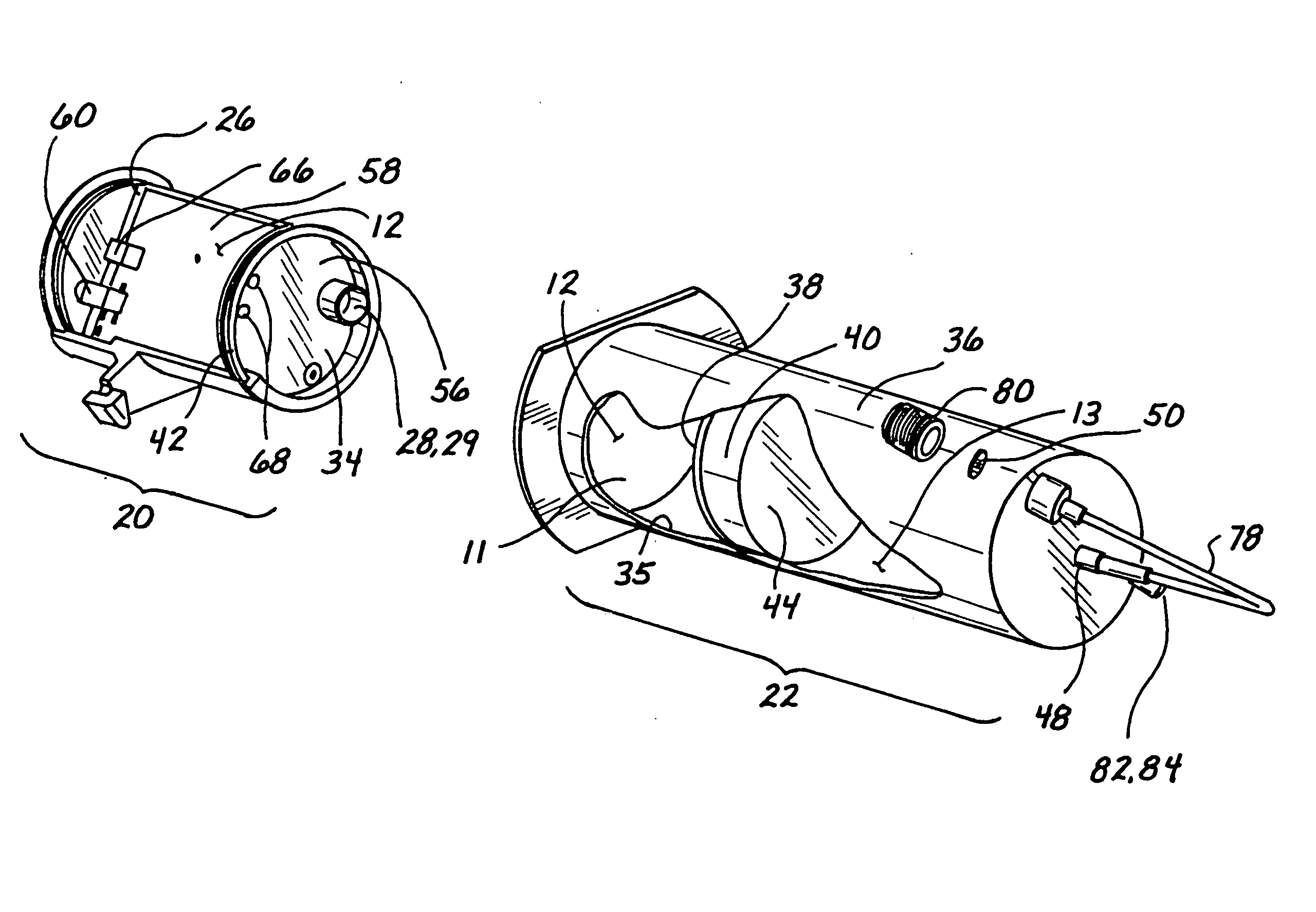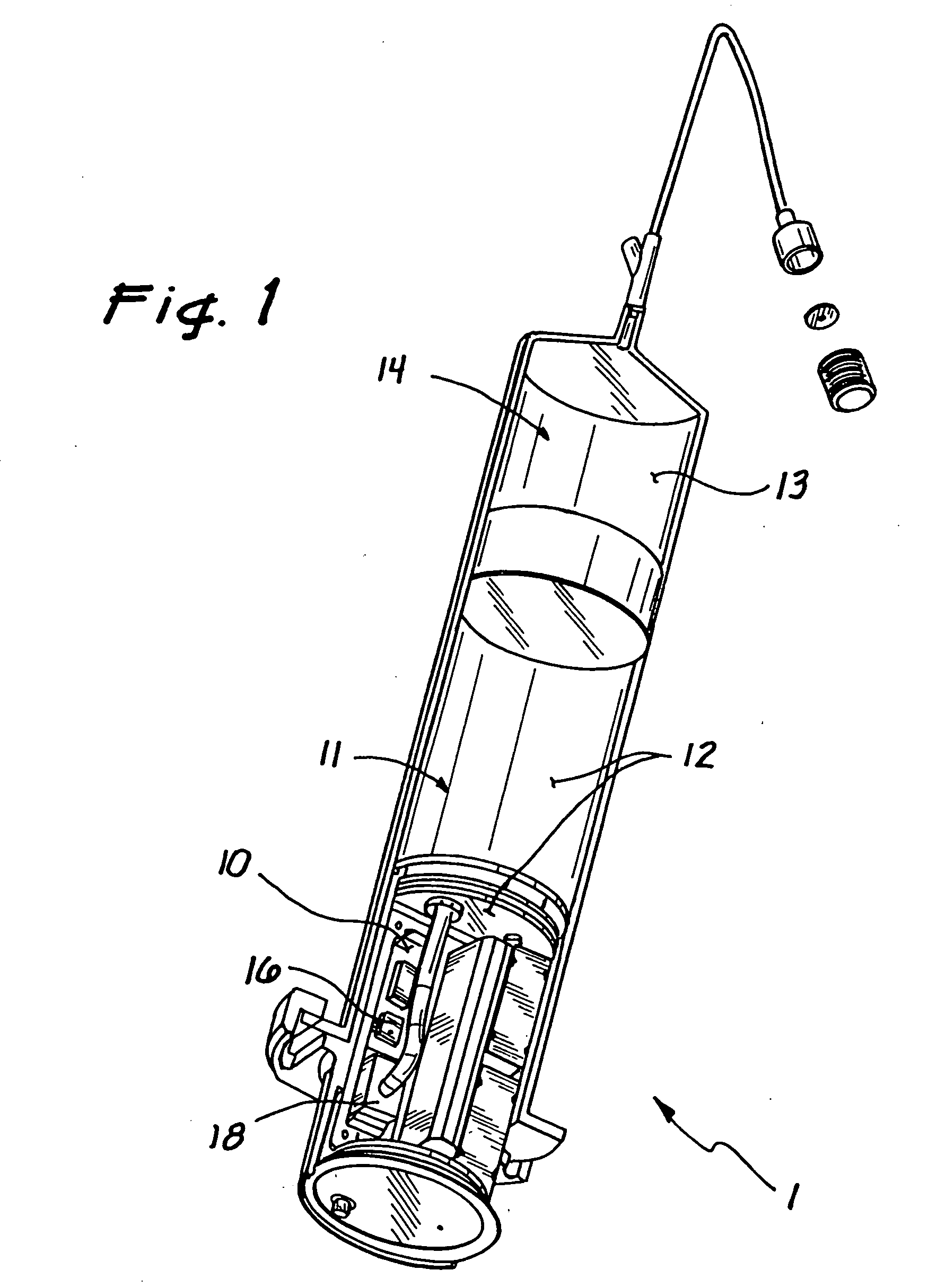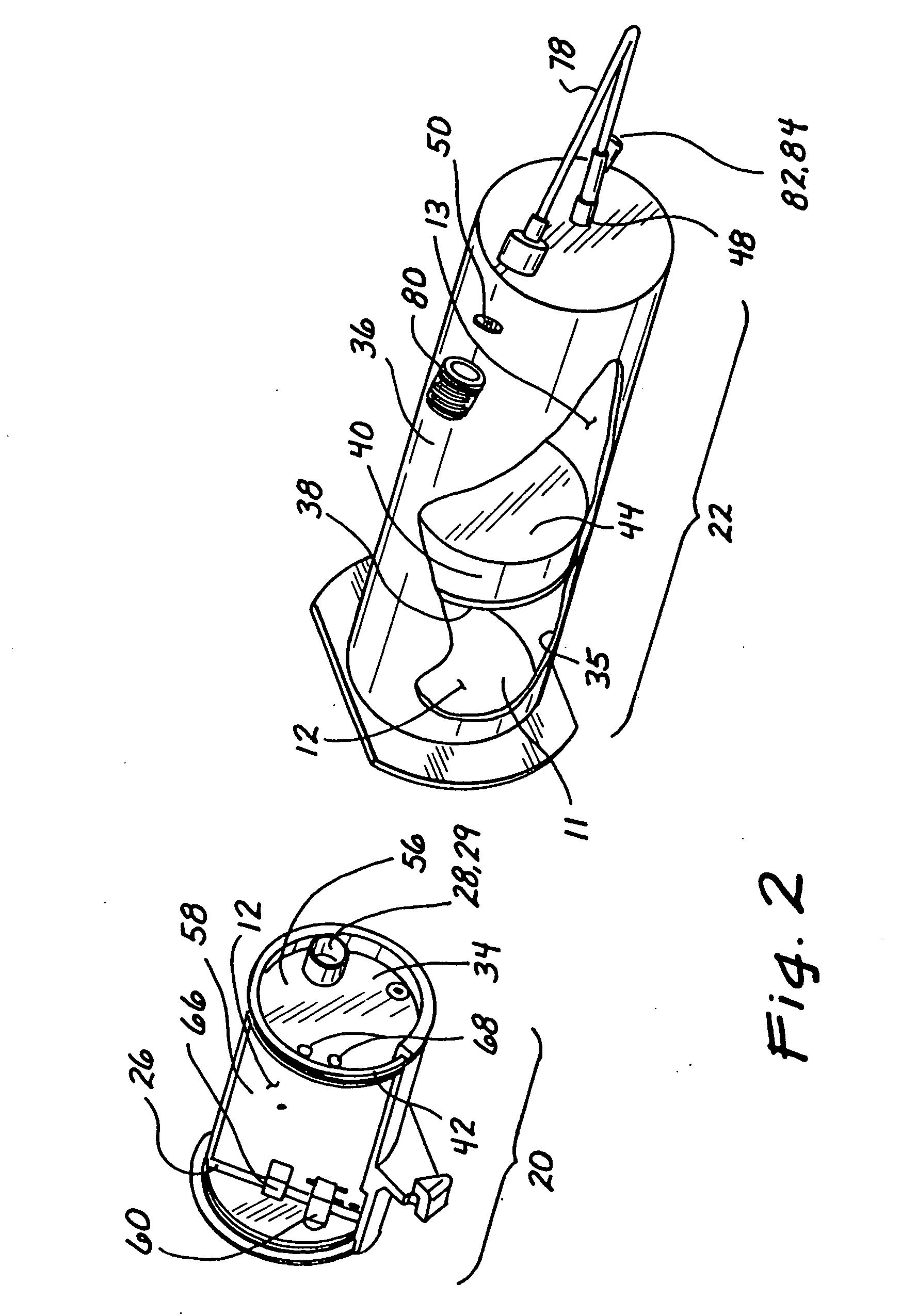Infusion pump and method for use
a technology of infusion pump and pump body, which is applied in the direction of liquid/fluent solid measurement, process and machine control, instruments, etc., can solve the problems of undesirable administration of such probes, severe measurement restrictions, and prior art systems that have generally failed to produce accurate measurements in a simple, compact package, and achieves relatively simple components, small size, and light weight
- Summary
- Abstract
- Description
- Claims
- Application Information
AI Technical Summary
Benefits of technology
Problems solved by technology
Method used
Image
Examples
Embodiment Construction
[0033] As shown in the drawings for purposes of illustration, the invention is embodied in a novel system to dispense a fluid and measure the fluid delivery rate.
[0034] In a preferred embodiment, shown in FIG. 1, the inventive device 1 comprises three chambers. A first chamber 10 and a second chamber 11 contain a gas 12 that is used to pump a fluid 13 contained in a third chamber 14. The fluid 13 is pumped at a controlled rate as the gas 12 in the first chamber 10 enters the second chamber 11. Two pressure probes 16 and 18 sense the pressure in the chambers 10 and 11. By monitoring these two pressures the volume of the second chamber 11 and, consequently, the volume of the third chamber 14 may be accurately determined. By knowing the volume of the third chamber 14, the volume or flow rate therefrom can be determined at any point in time. The resulting device provides a simple and economical method of delivering a fluid. Because the invention has few components, it is very reliable ...
PUM
 Login to View More
Login to View More Abstract
Description
Claims
Application Information
 Login to View More
Login to View More - R&D
- Intellectual Property
- Life Sciences
- Materials
- Tech Scout
- Unparalleled Data Quality
- Higher Quality Content
- 60% Fewer Hallucinations
Browse by: Latest US Patents, China's latest patents, Technical Efficacy Thesaurus, Application Domain, Technology Topic, Popular Technical Reports.
© 2025 PatSnap. All rights reserved.Legal|Privacy policy|Modern Slavery Act Transparency Statement|Sitemap|About US| Contact US: help@patsnap.com



